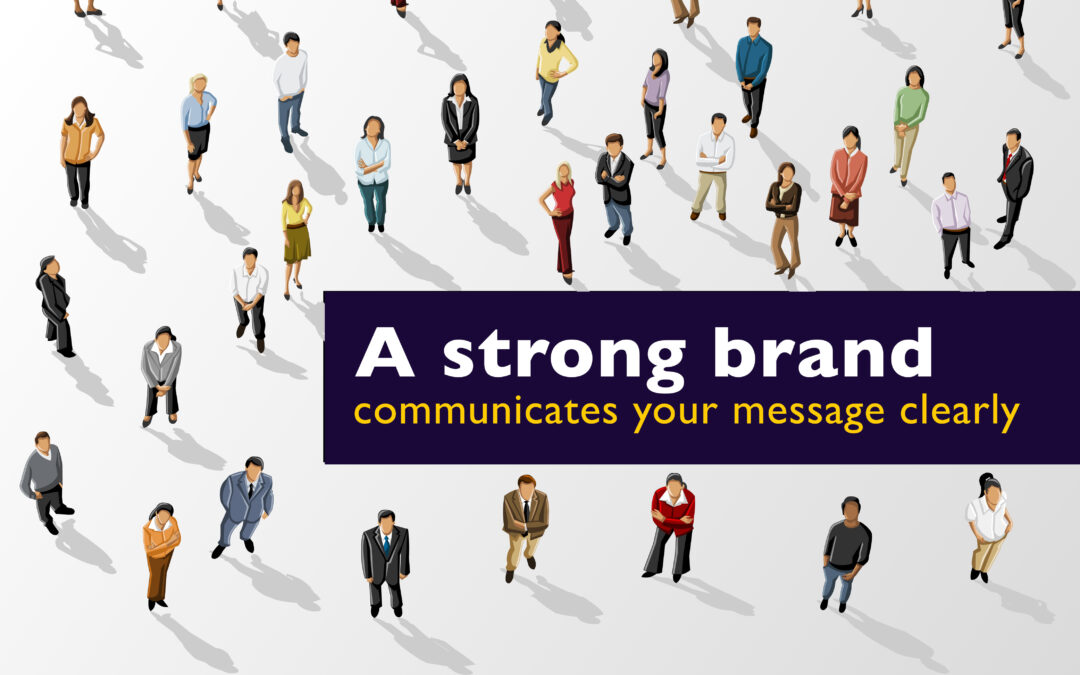This article from Entrepreneur explains what I am telling my own clients:
Why Branding Matters
Your brand should be built around your story, graphic design helps to tell your story and enhance the message.
Your brand is who you are. How you tell your story is an important aspect of your brand, and it makes a big difference to your success. I have been fortunate to work with some big brand story tellers and small ones too. When I worked for Microsoft, the story was always big, bold and was linked to the most powerful operating system at the time. From the beginning, Bill Gates had his vision of information at your finger tips. The internet was introduced to the public in the mid 1990’s after Microsoft set up the infrastructure to help it along, this made Bill’s vision story a reality. Lots of strategy, planning, building and managing happened to make the Microsoft brand story get told.
I worked on the Windows 95 packaging team, it was fun to see that product go out into the world at that time. Now I see it in the Museum of History and Industry on South Lake Union in Seattle. The Windows operating system has expanded and continues to grow in it’s form now but it had to have a story to start it’s history. I am grateful for that time and the knowledge I have now to work with clients wanting to grow their brand too.
I like the field of dreams saying, “if you build it, they will come.” I say if you build your brand, with all the ingredients of quality, value and a sense of being the best, they will comes. Your story tells people who you are, and that is what you should be setting your market goals about.
Branding is crucial for effectively conveying the message you want to communicate for several reasons:
1. Differentiation:
- Stand Out: In a crowded marketplace, branding helps your message stand out. It distinguishes you from competitors and gives your audience a reason to choose you over others.
- Unique Identity: A strong brand creates a unique identity. When people see your branding, they should immediately recognize it and associate it with your message, values, and offerings.
2. Trust and Credibility:
- Professionalism: A well-crafted brand conveys professionalism. When your branding is polished and consistent, it builds trust with your audience. They are more likely to trust a business that appears reputable and put-together.
- Consistency: Consistent branding across all platforms reinforces your credibility. It shows reliability and commitment to your message and values.
3. Emotional Connection:
- Invoke Emotions: Brands can evoke specific emotions in their audience. Whether it’s excitement, trust, or nostalgia, emotions are powerful drivers of consumer behavior.
- Build Loyalty: Emotional connections lead to brand loyalty. When people feel connected to a brand, they are more likely to become repeat customers and advocates.
4. Clarity and Focus:
- Clear Message: A strong brand communicates your message clearly. It helps distill complex ideas into simple, memorable concepts.
- Avoid Confusion: Without a clear brand, your message can get muddled. Consistent branding ensures everyone within and outside the organization understands the message you’re putting out.
5. Recognition and Recall:
- Memorability: Brands that are well-established and consistent are memorable. When consumers need a product or service, they are more likely to remember a brand they’ve seen frequently.
- Word of Mouth: A strong brand encourages word-of-mouth marketing. People are more likely to recommend a brand they recognize and trust.
6. Value Perception:
- Perceived Value: Strong branding can increase the perceived value of your products or services. People are often willing to pay more for brands they perceive as higher quality or more prestigious.
- Premium Positioning: If your branding conveys quality and exclusivity, you can position yourself in the premium market, attracting customers who are willing to pay a premium for perceived value.
7. Consistency and Longevity:
- Longevity: A well-established brand can stand the test of time. Consistent branding over years or decades creates a sense of stability and reliability.
- Adaptability: While consistent branding is important, brands can also evolve. Strong brands can adapt to changes in the market while maintaining their core identity.
In summary, branding is not just about a logo or a catchy slogan. It’s about the entire experience and perception that people have of your business. A strong brand communicates your message clearly, builds trust and credibility, creates emotional connections, and ultimately drives customer loyalty and growth.
By Peter McKinnon

